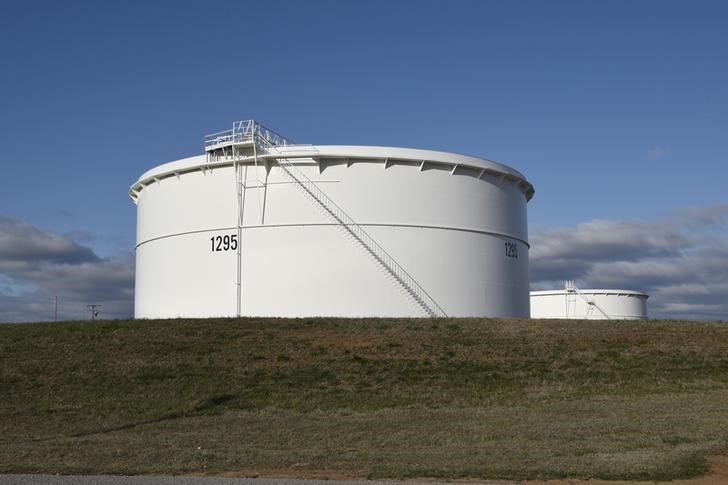Oil drops 1% as U.S. stockpiles sap rally
Oil prices fell after industry data showed crude oil stockpiles rose more than expected and fuel inventories increased unexpectedly last week in the United States, the world's largest oil consumer

Oil prices fell after industry data showed crude oil stockpiles rose more than expected and fuel inventories increased unexpectedly last week in the United States, the world's largest oil consumer.
Brent oil futures fell 88 cents, or 1%, to $85.52 a barrel by 1226 GMT after closing at the highest level in seven years on Tuesday. West Texas Intermediate (WTI) futures were down 95 cents, or 1.1%, at $83.70 after gaining 1.1% in the previous session.
Both benchmarks remain near multi-year highs and closed on Friday with a seventh straight weekly gain as major producers hold back supply and demand rebounds after the easing of pandemic restrictions.
Crude oil inventories rose by 2.3 million barrels in the week ending Oct. 22, market sources said late on Tuesday, citing American Petroleum Institute figures. That was more than the expected 1.9 million barrel gain.
Gasoline inventories rose by 500,000 barrels and distillate stocks increased by 1 million barrels, compared with a forecast for both to drop. [API/S]
With Brent rising for the past eight weeks and WTI climbing for the past 10 weeks, prices are starting to look overbought, analysts said.
"Barring more bullish headlines, which is possible considering what we saw yesterday, we could see some profit-taking in Brent and WTI, which would be healthy for the market," said Craig Erlam, senior market analyst at OANDA.
Storage tanks at the WTI oil delivery hub in Cushing, Oklahoma, are more depleted than they have been in the past three years, with prices for longer-dated futures contracts pointing to supplies staying at those levels for months.
However, a patchy recovery around the world from the worst health crisis in 100 years, has often led to doubts over the sustainability of oil prices.